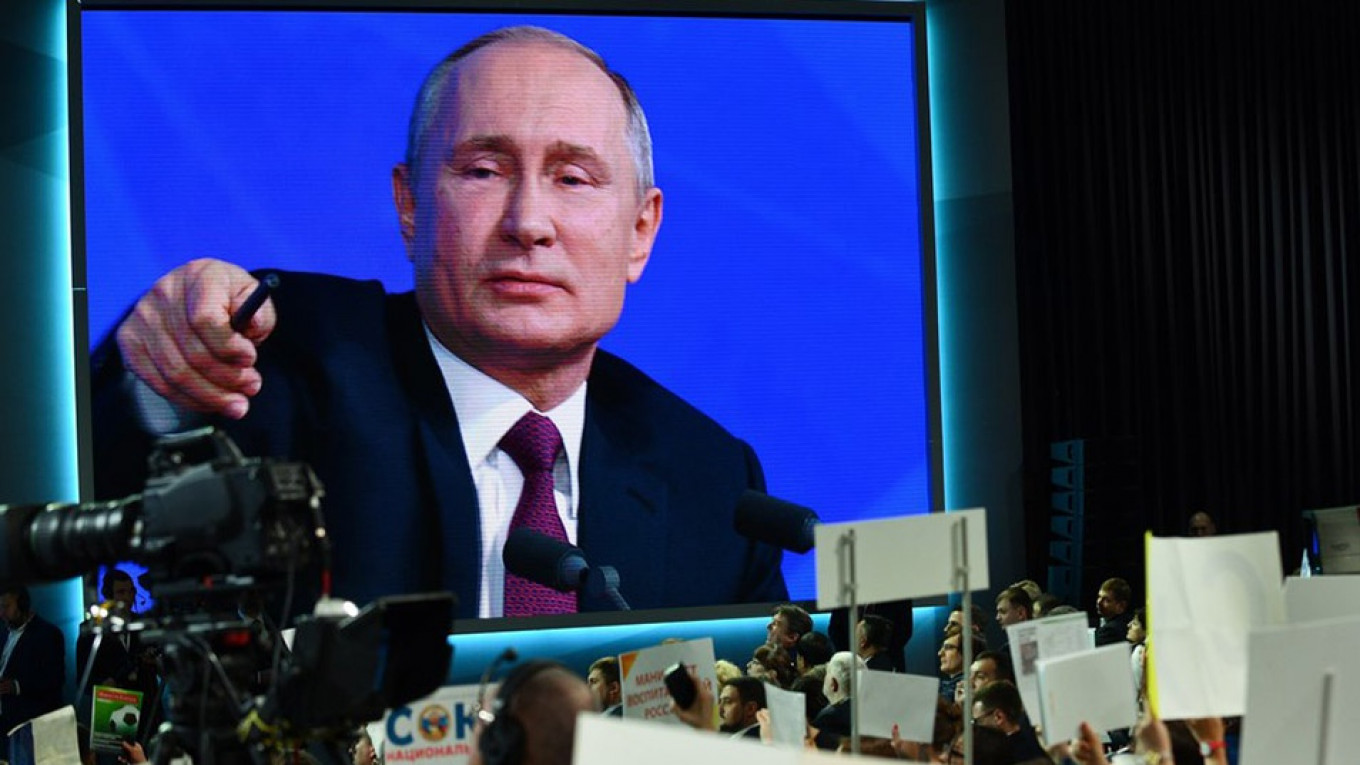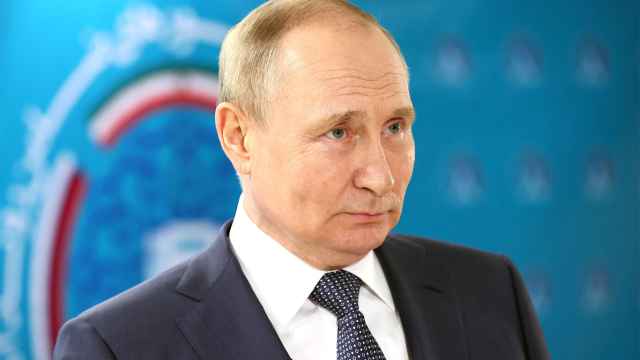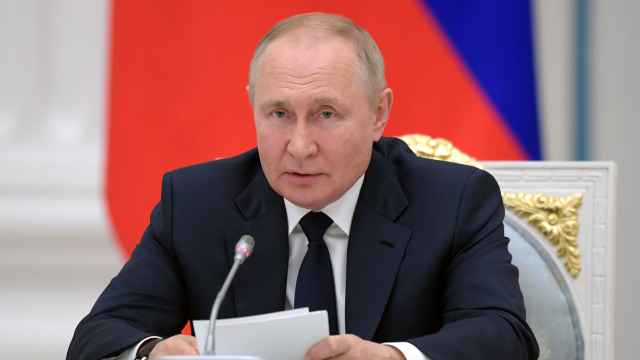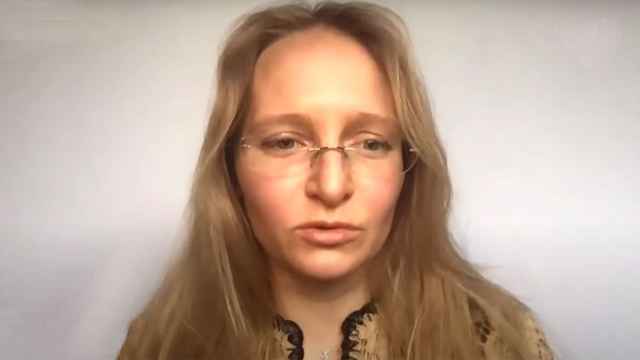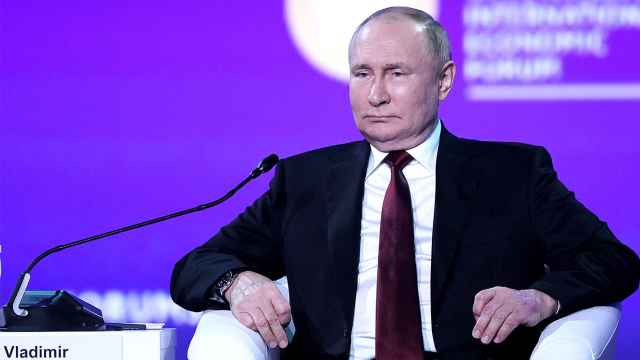At his annual press conference on Thursday, a beatific Vladimir Putin said his re-election victory and the football World Cup held in Russia were the highlights of 2018. That’s a remarkably upbeat assessment of a year that was by no means one of the Russian president’s best.
He won another term in March with 77 percent of the vote, but, as in every election in the Putin era, researchers have found statistical evidence of vote rigging. Although the fraud worked for Putin, it failed to produce results in a series of gubernatorial elections this year. Even though the Kremlin managed to reassert control over key regions such as the Maritime Territory in the Far East, voters are finding it easier to resist manipulation and cheating.
The discontent developed in large part because of Putin’s decision to raise the retirement age to 63 from 55 for women and to 65 from 60 for men, a step that successive Russian governments haven’t had the courage to take since the Soviet Union’s collapse. The president made the change with all the accumulated skill of his 18 years in power, letting the government announce the move during the early dopamine rush of the World Cup, letting critics lay out their arguments and then making some token concessions. Still, that didn’t help: His popularity dropped sharply from the levels he had enjoyed since Russia annexed Crimea in March 2014; it hasn’t recovered.
Of course, any politician would be happy with an approval rating above 60 percent, but there are more worrying signs for Putin. In a late November poll by Levada Center, the last independent nationwide polling organization in Russia, 61 percent of Russians said Putin is fully responsible for the nation’s problems. That’s the highest percentage since polling began; in March 2014, only 52 percent said Putin was fully responsible.
Putin is no longer immune from criticism, especially to young Russians who haven’t known any other ruler. The recent rebellion of some Russian rappers, including those previously loyal to Putin and his causes, and the prevalence of young people at rallies held by the anti-corruption activist Alexey Navalny cause alarm in the Kremlin. When the Russian president was asked at the news conference whether he was afraid of losing young people, he said they needed to be patiently convinced of the attractiveness of the conservative values he preaches. That hasn’t worked very well, so far.
The World Cup wasn’t a high point of the year for Putin alone; many Russians suddenly discovered that their country could open up to the world and throw off the constant fug of petty oppression. Smiling, lenient cops, multicolored, festive crowds, round-the-clock parties and a national team that played better than expected, gave people reason to feel happy for a while. But the comedown was inevitable; during the final game, Pyotr Verzilov, the producer of the politicized punk band Pussy Riot, and several young women rushed onto the field wearing police uniforms to draw attention to the other Russian reality: In September, Verzilov was poisoned after a court hearing; doctors in Berlin, where he was flown for treatment, managed to save him.
The perpetrators were never caught, but the use of poison by Putin’s Russia was the subject of much discussion in 2018 after the unsuccessful attack on the former spy Sergey Skripal in the U.K. That set off a series of uncomfortable revelations about the aggressive but awkward activities of Russian military intelligence, formerly known as the GRU.
All of this dark stuff, plus revelations of Russia’s use of mercenaries in a number of countries from Ukraine to the Central African Republic, have made it difficult for Putin to play the international statesman. His meeting with U.S. President Donald Trump in Helsinki in July went worse than anybody could have expected; whatever was discussed, the blowback in the U.S. was so harsh that Trump had to give up on making any deals with Putin. Hopes of finding new inroads into Europe through relatively pro-Russian populist parties have failed — even the right-winger Matteo Salvini in Italy, who had called for lifting European Union sanctions against Russia, didn’t do anything for Putin after coming to power.
The Russian president’s only successes in Europe this year have to do with natural gas exports. One was Germany’s steadfast refusal to cancel the Nord Stream 2 pipeline project despite U.S. pressure and the objections of Poland, the Baltic States and Ukraine. Germany badly needs more Russian gas to attain its environmental goals. The Turkish Stream pipeline, meant to supply Turkey and parts of southern Europe, recently made landfall in Turkey. If the pipelines come on stream in the next few years, they will be one of the few reasons for Russians to be grateful to Putin after he’s gone. But if they’re derailed by sanctions, they, too, will be part of his destructive legacy.
U.S. sanctions, meanwhile, got worse for Russia, and though the Trump administration intends to lift restrictions on Rusal, Russia’s biggest aluminum manufacturer, more punitive measures are likely to follow as a result of the Democrats’ victory in the American midterm elections in November.
Putin also has been unable to convert Russian military success in Syria into political gains. Even if the U.S. pulls out its small force, a political settlement in favor of Putin’s ally Bashar Assad would be difficult. A deal wouldn’t be in the interests of Turkey, which also is heavily involved in Syria, and Germany and France, which are expected to cough up the funding for the country’s post-war restoration. Talks will drag on into next year, with uncertain results.
Nor does Putin have a strong grip on Libya and Venezuela, which are strategically important to the Russian oil sector. The Kremlin has made inroads in both, cultivating current and potential strongmen, but the situation in both countries is volatile. Remaining a force there while fighting on all the other foreign fronts will be a huge challenge of Putin’s remaining years in office.
Ukraine, in particular, is a front on which Putin can’t seem to win. The Kremlin failed to prevent a split in the Orthodox Church caused by Kiev’s desire for spiritual independence from Moscow. Ukrainians in general haven’t warmed to Russia despite their country’s economic and military troubles, and they’re integrating more and more into the West. The next president of Ukraine, who will be elected in 2019, will find it hard to be accommodating toward Putin, even tactically.
Given Russia’s stagnant, inefficient, corruption-ridden economy and a population that’s likely to refuse to tighten belts any further, Putin can’t feel confident enough at home to take too many risks abroad. He might be tempted to try to regain popularity by stirring up trouble, but he’ll likely fight the temptation because, the second time around, it could have the opposite effect. His trusty propaganda machine cannot mask Russians’ dissatisfaction with economic conditions. At the news conference, Putin touted 0.5 percent growth in inflation-adjusted incomes this year, though, in reality, official data for the first 11 months show them down 0.1 percent.
Next year will be tough. Without the emotional highs of re-election and a major sporting event, Putin will face a hard struggle against a completely alienated West, even as he tries to maintain a foothold in the Middle East and Africa and keep finances at home stable enough to withstand shocks from sanctions and he deals with a weakening oil price. With no spectacular achievements on the horizon, the autocrat’s fading appeal won’t be easy to restore, and factions within the regime preparing for the post-Putin era are likely to become bolder and more visible.
A Message from The Moscow Times:
Dear readers,
We are facing unprecedented challenges. Russia's Prosecutor General's Office has designated The Moscow Times as an "undesirable" organization, criminalizing our work and putting our staff at risk of prosecution. This follows our earlier unjust labeling as a "foreign agent."
These actions are direct attempts to silence independent journalism in Russia. The authorities claim our work "discredits the decisions of the Russian leadership." We see things differently: we strive to provide accurate, unbiased reporting on Russia.
We, the journalists of The Moscow Times, refuse to be silenced. But to continue our work, we need your help.
Your support, no matter how small, makes a world of difference. If you can, please support us monthly starting from just $2. It's quick to set up, and every contribution makes a significant impact.
By supporting The Moscow Times, you're defending open, independent journalism in the face of repression. Thank you for standing with us.
Remind me later.



